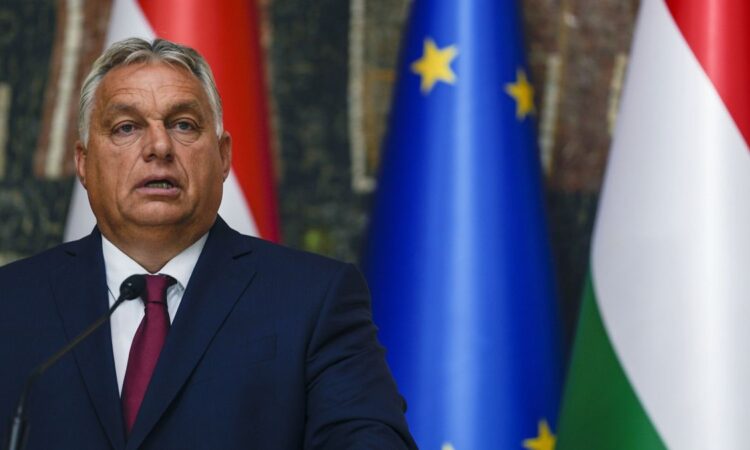
The European Commission approved on Thursday the revised version of Hungary’s recovery and resilience plan, a decision that foresees the release of €920 million without strings attached.
The amendment adds €4.6 billion (€3.9 billion in low-interest loans and €0.7 billion in non-repayable grants) to the previously endorsed plan, making a total of €10.4 billion in EU funds to be disbursed in gradual tranches over the next years.
The upward revision is part of RePower EU, the European Union’s ambitious plan to diversify away from imported fossil fuels and accelerate the green transition, introduced in the immediate aftermath of Russia’s invasion of Ukraine.
Countries are entitled to receive 20% of their allocated cash under RePower EU as “pre-financing” to provide liquidity and kick-start clean energy projects. In Hungary’s case, the “pre-financing” amounts to €920 million, which will be paid out in two separate tranches over the next 12 months.
Notably, the €920 million does not come with any additional conditions. The remainder of the €10.4 billion plan remains strictly linked to the fulfilment of 27 “super milestones,” a series of reforms related to the fight against corruption, the strengthening of judicial independence and the establishment of audit systems.
The “super milestones” were imposed last year and Hungary is said to have made substantial progress in their completion following an intense back and forth between Budapest and Brussels.
The Commission’s positive assessment, released on Thursday afternoon, still needs to be approved by a qualified majority of member states. The green light is widely expected to happen, as governments follow an unwritten gentlemen’s agreement under which they do not block each other’s national plans once the Commission gives its blessing.
Still, the release of €920 million without strings attached is set to be controversial.
Hungary has long been under scrutiny for its perceived democratic backsliding, which led to a protracted impasse over the country’s recovery and resilience plan. Separately, the standoff with Brussels triggered the freezing of €22 billion in cohesion funds.
In reaction to what he calls “financial blackmail,” Hungarian Prime Minister Viktor Orbán has adopted a filibustering position and threatened to wield his veto power to derail key collective decisions, including the opening of membership talks with Ukraine.
Last month, Orbán met Russian President Vladimir Putin in China, the first bilateral meeting of an EU leader since the Kremlin launched the all-out war on Ukraine. The encounter went down badly in Brussels and was seen as an affront to European unity.
Days later, the PM came strongly against the creation of a €50-billion EU fund to provide Ukraine with long-term financial assistance.
And earlier this week, Budapest unveiled a public campaign targeting Ursula von der Leyen, the president of the European Commission, and Alexander Soros, the son of billionaire George Soros and current chair of the Open Society Foundations (OSF). The billboards, plastered across Hungary, read: “Let’s not dance to the tune they whistle!”
The campaign is part of a non-binding national consultation that asks citizens for their opinions on a selection of EU policies. The survey includes 11 questions replete with heavily biased statements.
Also this week, Orbán’s government tabled new legislation aimed at creating a “sovereignty protection office” to probe the use of foreign funding in domestic campaigns and NGO activities. The law’s broad wording has raised concerns about a possible crackdown on political opponents, civil society and trade unions.
Asked whether the Commission was making a concession to ensure Viktor Orbán’s backing for the bloc’s upcoming decisions on Ukraine and the common budget, a spokesperson denied this was the case and insisted the executive was simply following the RePower EU regulation, which foresees the automatic pre-financing.
“We’re absolutely not sending any message,” a Commission spokesperson said on Thursday. “I don’t believe anybody will see this implementation of the rules as somehow the Commission stating a position on Hungary’s respect for the rule of law.”
The spokesperson added the pre-financing amounts could be deducted from Hungary’s sum of recovery funds if the country fails to fulfill the 27 “super milestones” and is therefore unable to unlock the remainder of the cash.
The final deadline for compliance is 31 December 2026.
This article has been updated with more details about the Commission’s decision.






